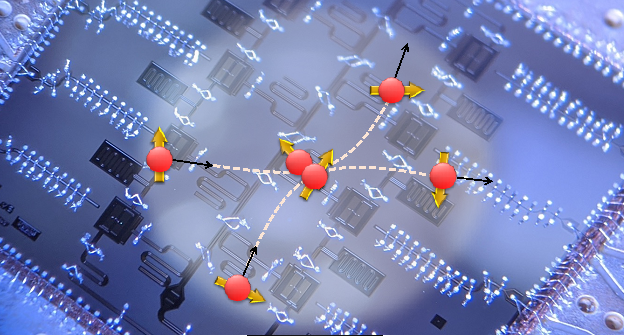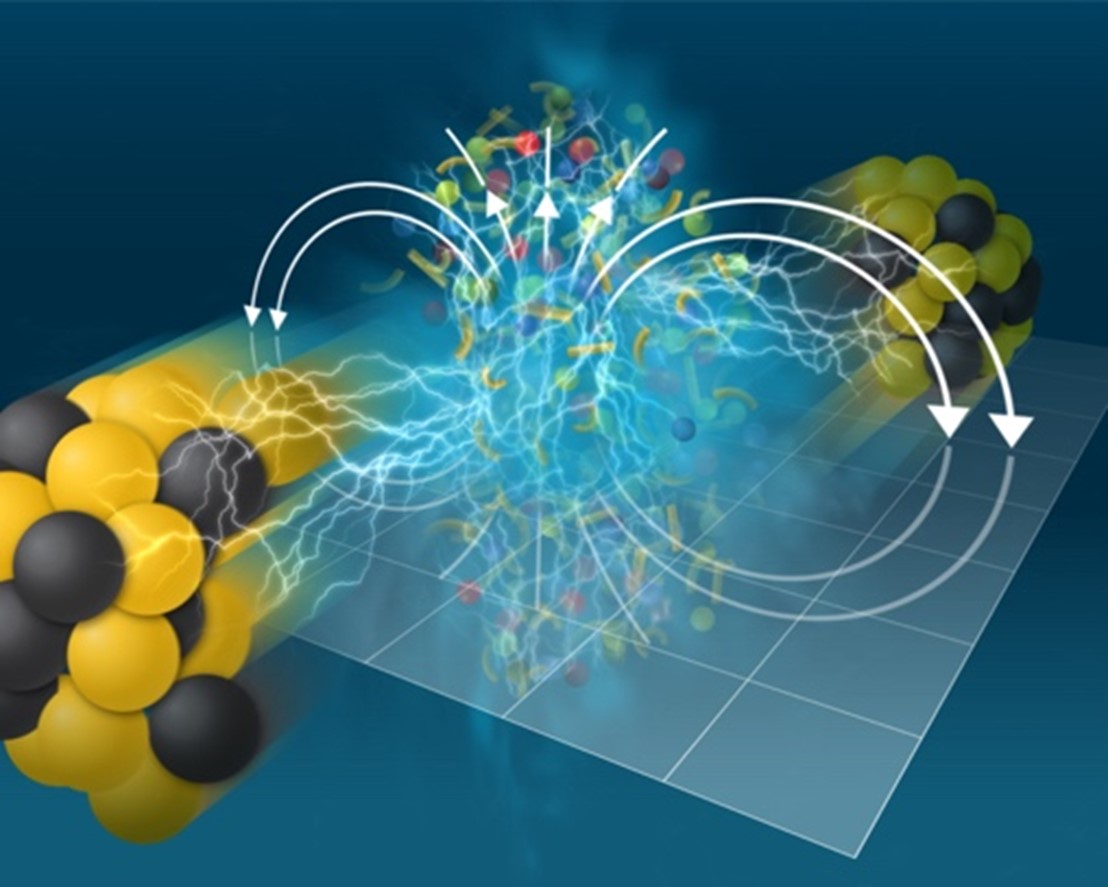Community Resources
What's New
2024 Norman F. Ramsey Prize in Physics
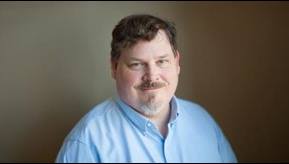 2024 Norman F. Ramsey Prize in Atomic, Molecular and Optical Physics, and in Precision Tests of Fundamental Laws and Symmetries. Awarded annually by the American Physical Society (APS), the Ramsey Prize recognizes outstanding accomplishments in the research areas of Nobel Laureate and physicist Norman Ramsey.
2024 Norman F. Ramsey Prize in Atomic, Molecular and Optical Physics, and in Precision Tests of Fundamental Laws and Symmetries. Awarded annually by the American Physical Society (APS), the Ramsey Prize recognizes outstanding accomplishments in the research areas of Nobel Laureate and physicist Norman Ramsey.
The recipient of the 2024 Ramsey Prize is Dr. David DeMille from the University of Chicago. According to the APS announcement is being acknowledged
"For pioneering work in molecular physics, cooling, and spectroscopy that has profoundly advanced the search for the electric dipole moment of the electron, and for placing stringent constraints on modifications to the Standard Model in a tabletop experiment."
Dr. David DeMille’s research is supported by the DOE’s Office of Science, Office of Nuclear Physics (NP).
Below is the link to the corresponding APS web site:
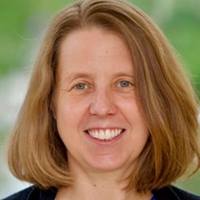
2024 Feshbach Prize in Theoretical Nuclear Physics
The Feshbach Prize in Theoretical Nuclear Physics was established in 2014 by the American Physical Society (APS) “To recognize and encourage outstanding research in theoretical nuclear physics.” The Prize commemorates Herman Feshbach, who was a renowned Professor of Theoretical Nuclear Physics at the Massachusetts Institute of Technology (MIT) for over 50 years and served as Department Chair and Director of the MIT Center for Theoretical Physics. The Feshbach Prize is supported by the APS Division of Nuclear Physics (DNP), and by the Feshbach family and friends.
The recipient of the 2024 Feshbach Prize is Professor Gail McLaughlin from North Carolina State University. According to the APS announcement is being acknowledged
"For seminal contributions to the study of neutrinos in explosive systems and for elucidating the profound impact of this microphysics on the synthesis of elements."
Professor McLaughlin’s research is supported by the DOE’s Office of Science, Office of Nuclear Physics (NP).
Below is the link to the corresponding APS web site:
https://www.aps.org/programs/honors/prizes/prizerecipient.cfm?last_nm=McLaughlin&first_nm=Gail&year=2024
Office of Science Achievement Award for 2022 Presented to The Facility for Rare Isotope Beams (FRIB)
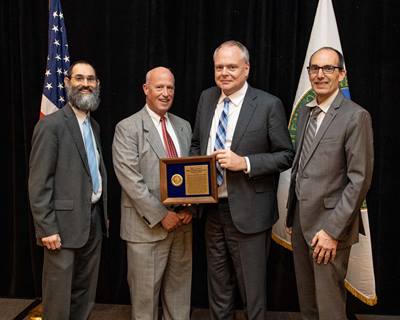
Designed to be the most powerful heavy-ion accelerator, FRIB enables scientists to make discoveries about the properties of short-lived nuclei not commonly found on Earth known as rare isotopes with implications in nuclear astrophysics, fundamental interactions, and with applications for society, including in medicine, homeland security, and industry.
Consisting of a four-building complex that extends 32 feet underground joined to an underground tunnel 570 feet long, 70 feet wide, and 13 feet high housing a superconducting linear accelerator capable of delivering a 400 kW at beam energies in excess of 200 MeV/nucleon, this Office of Science User Facility, with an active user community of over 1,800, accelerates beams comprised of stable atomic nuclei from hydrogen to uranium to half the speed of light which following collision with a thin target material creates reaction products including the rare isotopes requested by experimenters. A fragment separator uses 13 superconducting magnet elements to select isotopes and sends them to the experimental area where detectors measure their unique properties or interaction with other nuclei.
The project team is commended for their ingenuity and outstanding planning to successfully complete the project within budget and on schedule. FRIB is a proud and extraordinary achievement for DOE and the Nation.

